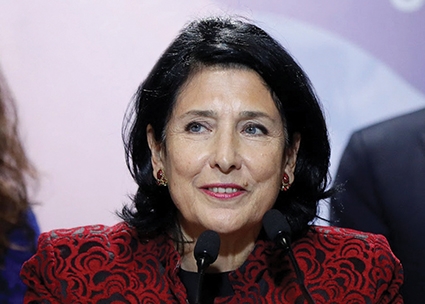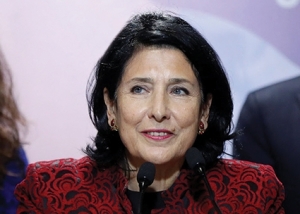First Female President Does Not Signify Gender Equality
Salome Zurabishvili was sworn-in as the new President of Georgia on 16 December at an inauguration ceremony in Telavi. Many foreign media outlets focused on the fact she is Georgia’s first female president. However, despite her significant victory, equal participation is far from reality in Georgian politics.
‘Salome Zurabishvili has won Georgia’s presidential election, becoming the first woman to hold the office’ read the opening lines from a BBC report. As the first female to be elected President of Georgia, her victory is indeed historic. Nonetheless, it shouldn’t detract from the fact that women remain a marginal force within Georgian politics.
In reality, females account for only 15% of MPs and less than 14% of local councillors. In addition, only 3 of the 19 government ministers are women. These figures, published by the UNDP at the beginning of 2018, show that Georgia remains well below the global average of female participation in politics. The average number of female MPs in national parliaments in Europe and OSCE member countries is 27.5%.
Furthermore, Georgia’s progress is lagging behind that of other countries, meaning not enough is being done to lessen the discrimination and inequality towards women in political, as well as economic and social life. The rate of women’s political participation has increased globally much more than it has in Georgia over the past years.
“Georgia needs to do more to avoid being left behind in this key area of social and economic development” reads the UNDP report. The implemented financial incentives to political parties to include females on party lists have proven to be relatively ineffective. Instead, the UNDP recommends Georgia adopt mandatory quotas, at least as a temporary measure, to improve equality in the political sphere.
Quotas are one method to help kick-start women’s political representation. Countries such as Slovenia, Mongolia, Kyrgyzstan, Poland, Montenegro, and Serbia, among others, have established a quota to ensure minimum participation of both genders on party lists for parliamentary elections.
To make significant progress towards proportional representation, Georgia should undergo significant reform in its electoral systems to provide for at least 30% participation by women, as well as include the participation of marginalized and disadvantaged women, including ethnic minorities.
Article 11 of the Law on Gender Equality, adopted in 2010 in Georgia, has three main goals: ‘Everyone shall have the right to participate in elections on equal terms without discrimination; Both men and women shall have equal rights to be elected to a representative body; Men and women may be elected on equal terms without discrimination.’ However, these declarations remain unrealized.
Achieving women’s full and effective participation as well as equal leadership opportunities at all levels of decision making in public, economic and political life is essential to build a successful society based on sustainable development. Although the appointment of Salome Zurabishvili to the post of President of Georgia does indeed make history, it does not yet represent a victory for gender inequality in Georgia.
By Amy Jones
Image source: Reuters












